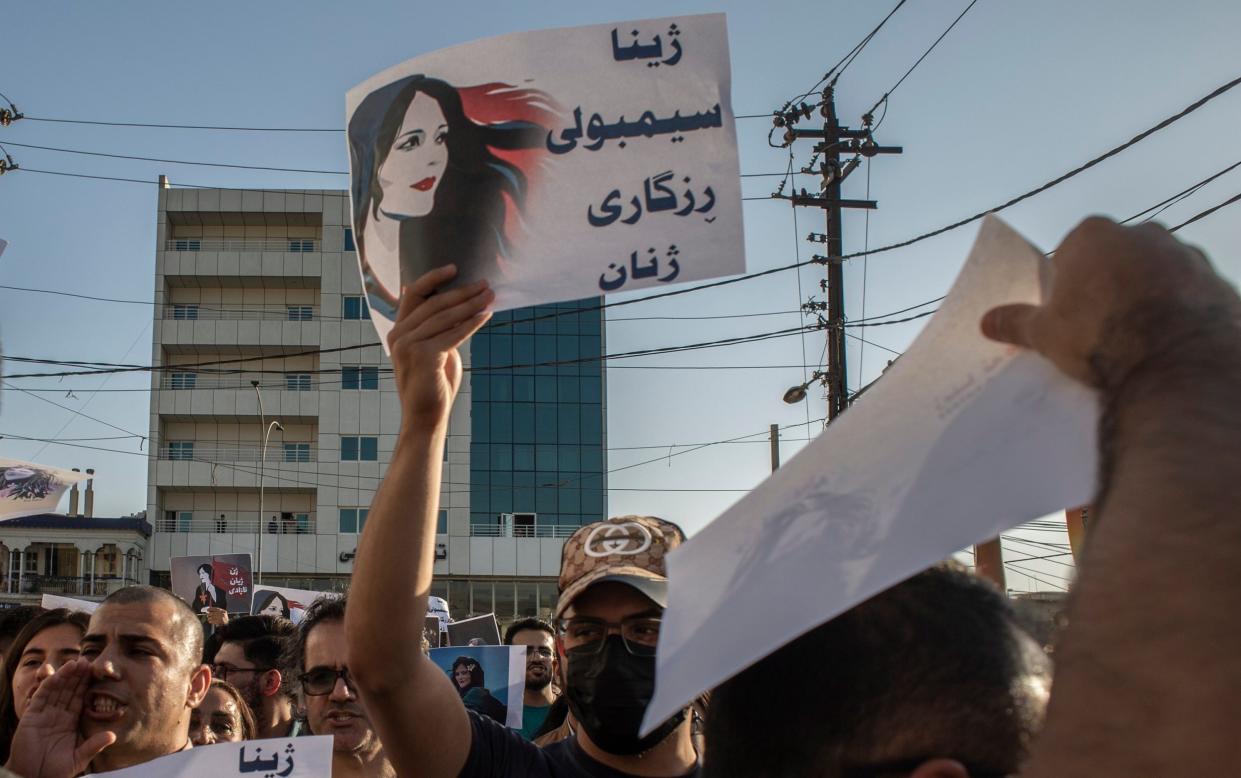Iran executes demonstrator in first use of death penalty during recent national protests

Iran on Thursday executed a demonstrator for blocking a street and injuring a paramilitary officer, marking the first known death penalty for people arrested during the protest movement that has swept the country.
Mohsen Shekari was hanged after a “show trial” during which he did not have access to legal representation, according to the NGO Iran Human Rights.
His killing comes as activists and demonstrators fear that the death penalty could become more widely applied as a method to quell the protests.
Nationwide protests that erupted after the death of 22-year-old Kurdish Iranian woman Mahsa Amini on Sept 16 represent one of the biggest challenges to the Islamic Republic since its establishment in 1979.
The “execution of Mohsen Shekari must be met with strong reactions otherwise we will be facing daily executions of protesters,” said Iran Human Rights director Mahmood Amiry-Moghaddam.
Iran’s Mizan news agency said that Mr Shekari had blocked a road in Tehran and injured a member of the Basij paramilitary force with a machete on Sept 25.
He was found guilty of fighting and drawing a weapon “with the intention of killing, causing terror and disturbing the order and security of society”. He was convicted of waging “war against God” under Islamic sharia law.
He appealed his sentence but it was upheld by the Supreme Court on Nov 20.
At least ten other people have so far been sentenced to death over alleged crimes committed during the demonstrations. This week alone five people were condemned to be hanged for killing a member of the Basij, the state-sanctioned volunteer paramilitary force.
The Iranian judiciary seeking the death penalty against protesters is a “chilling escalation in [its] use as a tool of political repression,” Amnesty International said last month.
The Islamic regime has been struggling to contain the largely peaceful protest movement for almost three months.
More than 400 people are thought to have been killed, in a bloody crackdown that has led to increasing reports of sexual assaults of detainees and security forces firing at female protestors’ heads, breasts and genitals.
The revolutionary guards this week called on the judiciary to “not show mercy to rioters, thugs and terrorists” as they continue their fierce crackdown on the protestors.
They encouraged the judiciary to issue their judgements swiftly and decisively against the thousands of people who are thought to have been arrested in the protests.
“Taking the life of one person is taking the life of all of us! Can you set up enough gallows for all of us?” tweeted Hossein Ronaghi, a prominent activist who was recently released on bail after a hunger strike in Evin prison.

